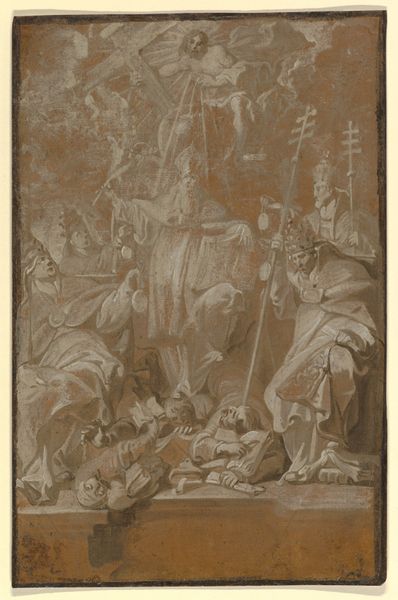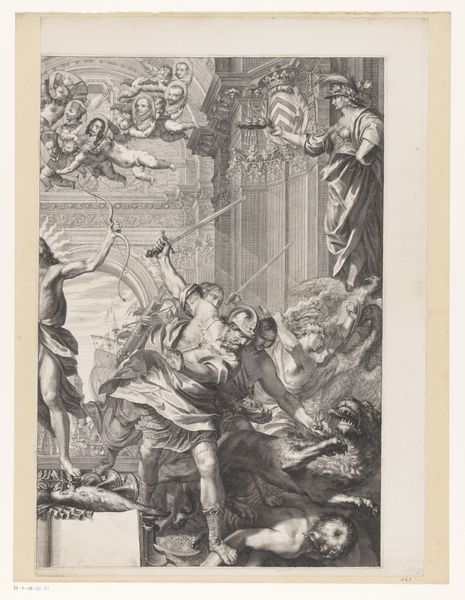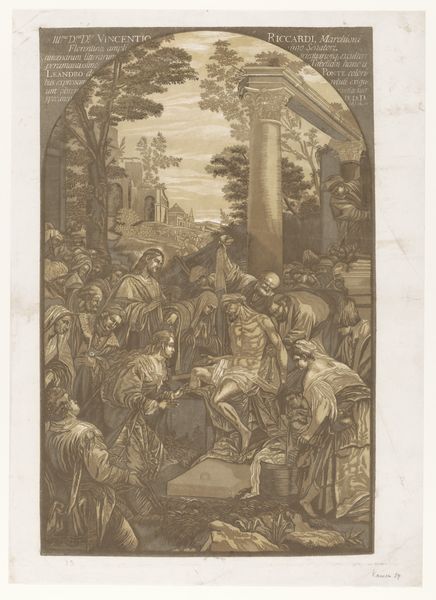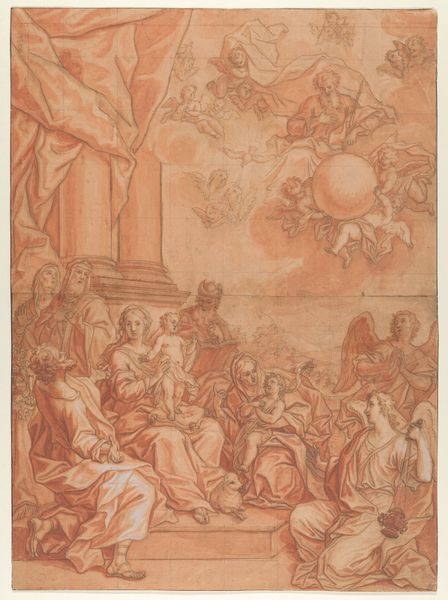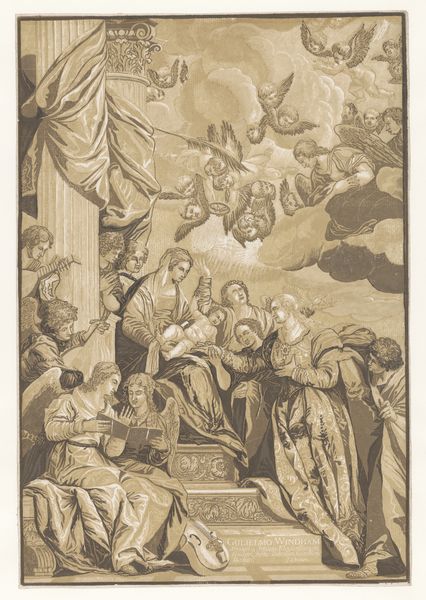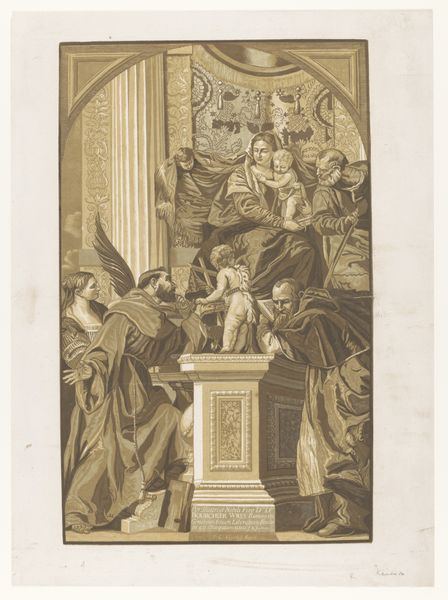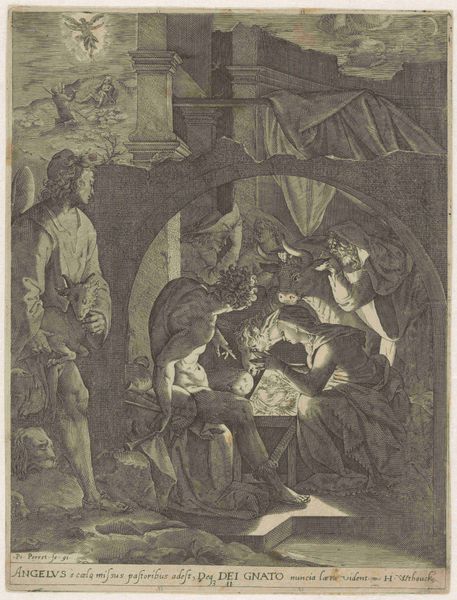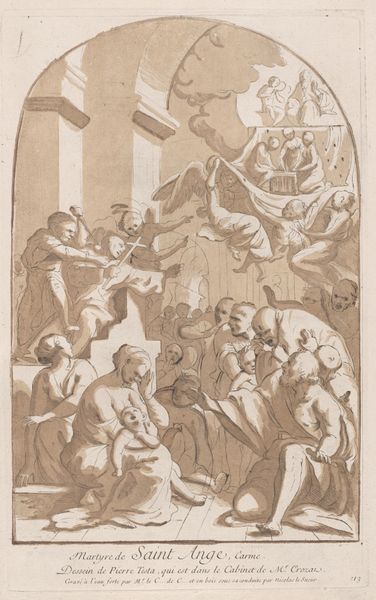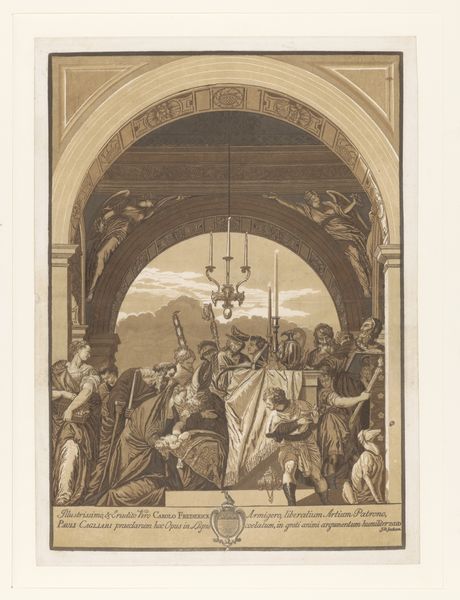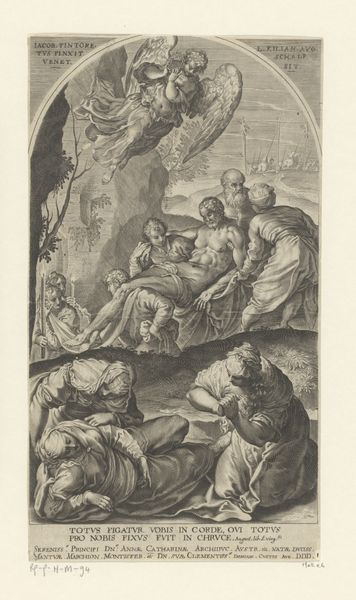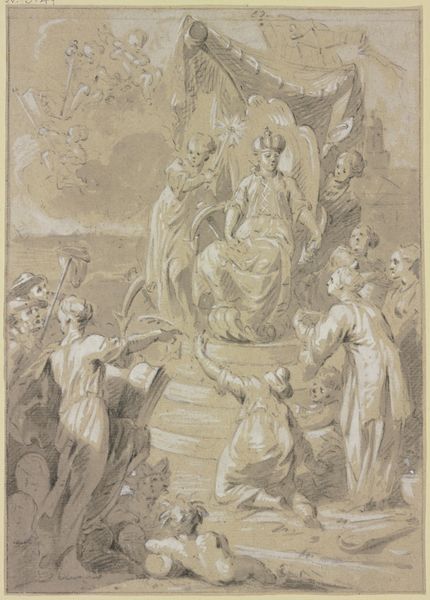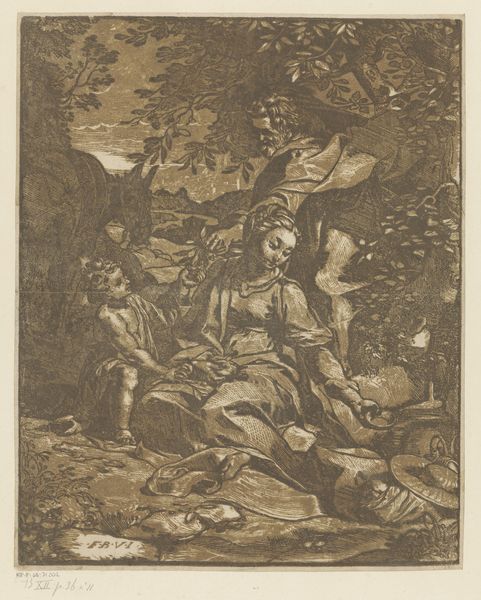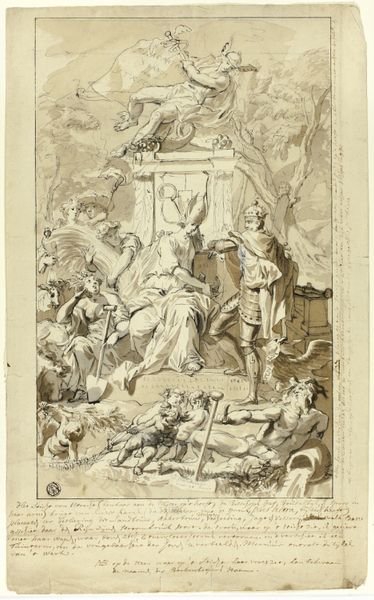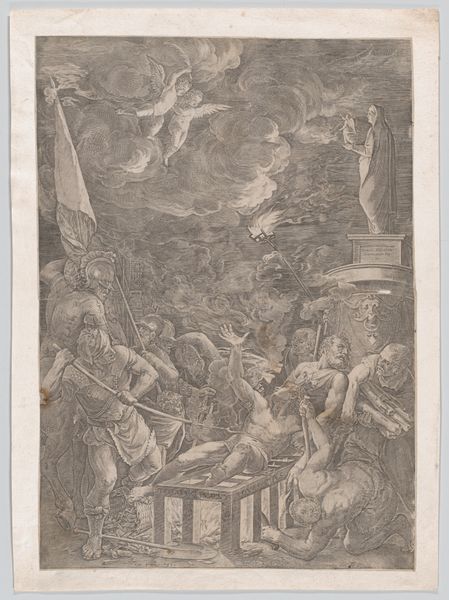
Dimensions: height 592 mm, width 455 mm
Copyright: Rijks Museum: Open Domain
John Baptist Jackson created this powerful scene, "Marcus redt een slaafgemaakte man van zijn marteling", using a woodcut technique. Woodcut is a relief printing process, where the artist carves away areas of a wood block, leaving the design to be printed raised. The monochrome color scheme, achieved with nuanced layers of ink, enhances the drama of the moment, focusing on the tension between the figures, and between slavery and freedom. The final print bears witness to Jackson's labor, as each line, texture, and tonal shift is the direct result of a physical engagement with the material. Woodcut, while a traditional medium, can also be seen as a medium of the people. It's a more accessible means of production compared to other art forms, allowing for wider distribution and engagement with social and political themes such as the abolition of slavery. The starkness of the lines and the contrasts underscore the urgency and moral weight of the scene. By understanding the materiality and process behind this artwork, we can better appreciate its social context and challenge conventional boundaries between fine art and craft.
Comments
No comments
Be the first to comment and join the conversation on the ultimate creative platform.
